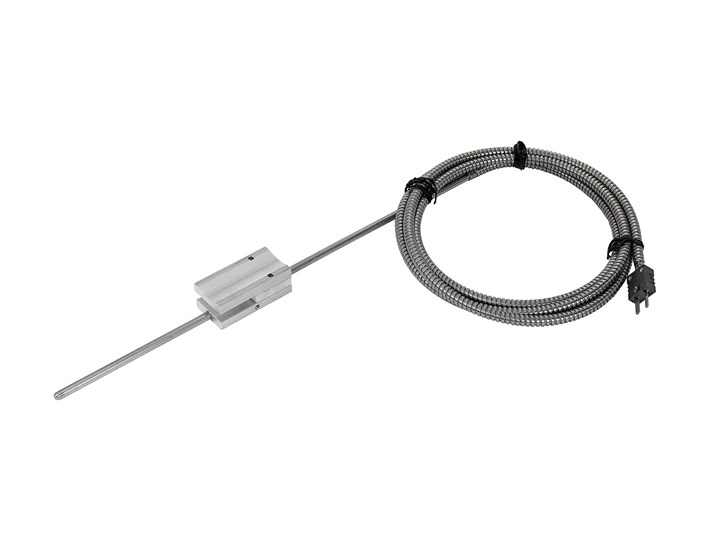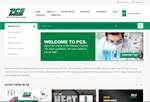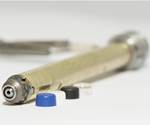Nozzle Leak Detector Helps Avoid Costly Repairs, Downtime
PCS Company’s Nozzle Leak Detector (NLD) can sense plastic leakage between the mold and the machine nozzle, catching the problem before major maintenance is required.

Photo Credit: PCS Company
PCS Company has introduced the Nozzle Leak Detector (NLD) to help molders detect plastic leakage between the mold and the machine nozzle, preventing costly downtime and repairs. Caused by cracked nozzle tips, misaligned nozzles, plugged gates and other issues, nozzle leaks are a common problem that can cause time-consuming maintenance and repairs, resulting in lost productivity.
The NLD mounts directly onto the machine nozzle with a clamp and features a sensor that plugs into an alarm box. When the sensor detects a leak, the NLD sounds an alarm and triggers a visual alarm light. Input and output receptacles enable connection to the molding machine, which can be directed to stop the molding cycle immediately once a leak is detected. The alarm box operates on 120V power and allows users to set the temperature at which the alarm be triggered. PCS recommends setting the alarm at 100-150ºF beneath the nozzle’s operating setpoint. An alarm silencer switch enables users to turn off the audible alarm until the leak has been fixed.
The NLD’s are made in the U.S. and are available with four sizes of sensors to fit most injection machine nozzles. The sizes include 3-, 6-, 9- and 12" units. They come with an alarm box, plugs and 60" cable leads. PCS says the NLD’s are ideal for unattended molding machines and can eliminate the potential for hours of cleanup time and undue lost production. The NLD’s can be used as standalone units or with interlocks connected to the injection machine control. PCS noted that it currently has more than 1,000 of the NLD’s in operation worldwide, including some customers with one on every molding machine in their plant.
Related Content
-
Hands-on Workshop Teaches Mold Maintenance Process
Intensive workshop teaches the process of mold maintenance to help put an end to the firefighting culture of many toolrooms.
-
6 Ways to Optimize High-Feed Milling
High-feed milling can significantly outweigh potential reliability challenges. Consider these six strategies in order to make high-feed milling successful for your business.
-
It Starts With the Part: A Plastic Part Checklist Ensures Good Mold Design
All successful mold build projects start with examining the part to be molded to ensure it is moldable and will meet the customers' production objectives.











